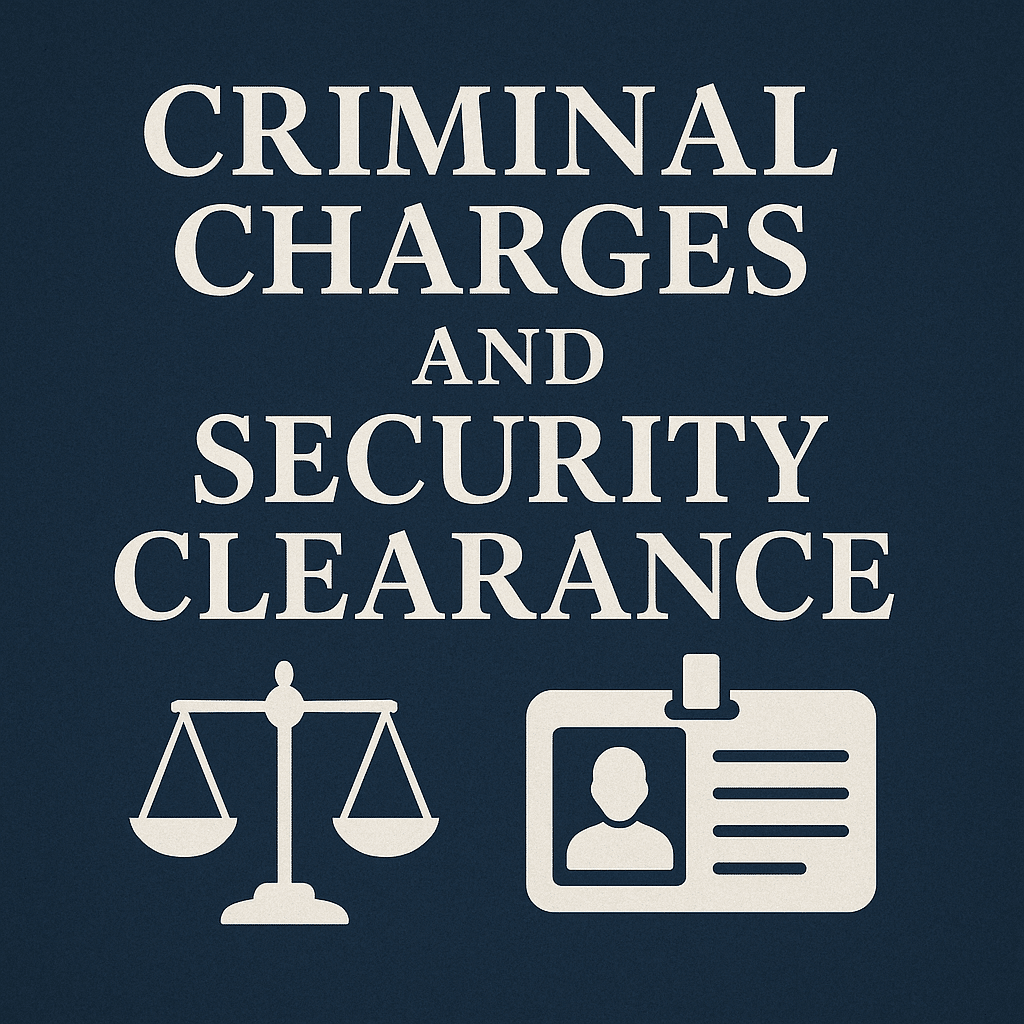
If you hold or are applying for a security clearance, facing criminal charges can put your career and livelihood at risk. Whether you work for a government agency, a defense contractor, or in a sensitive private-sector role, the federal government takes criminal conduct seriously when evaluating your eligibility for a clearance.
Here’s what you need to know about how criminal charges affect a security clearance—and what you can do to protect your future.
Can Criminal Charges Lead to Security Clearance Denial or Revocation?
Yes. Any criminal charges—whether misdemeanors or felonies—can trigger a review of your clearance under the Adjudicative Guidelines for Determining Eligibility for Access to Classified Information. Specifically, Guideline J: Criminal Conduct addresses concerns about a person’s willingness to comply with laws, rules, and regulations.
You do not need to be convicted for a charge to affect your clearance. Even an arrest, pending charge, or pattern of questionable behavior may be enough to prompt a review or denial.
What Factors Are Considered Under Guideline J?
When reviewing a criminal charge in the context of a security clearance, the government looks at:
- The nature and seriousness of the offense
- Whether it was a one-time incident or part of a pattern
- How long ago the conduct occurred
- Whether the conduct reflects poor judgment or dishonesty
- Whether the individual has taken steps toward rehabilitation
Even if the case is ultimately dropped or you receive a favorable outcome, you may still have to explain the situation during a security clearance investigation or renewal.
Does a Dismissed or Expunged Charge Still Matter?
Unfortunately, yes. Security clearance investigations often go beyond court outcomes. Even if your case was dismissed, placed on the stet docket, or expunged, it may still come up during a background check. Investigators may request full disclosure of your criminal history, and failure to be honest can lead to clearance denial based on lack of candor.
In fact, failing to disclose an arrest or charge—even if expunged—can be worse than the charge itself.
How Do DUI, Drug Charges, or Domestic Violence Impact Security Clearance?
Certain types of charges raise particular red flags in clearance investigations:
- DUI: May signal alcohol abuse, triggering concerns under Guideline G: Alcohol Consumption
- Drug Charges: Even minor marijuana charges can raise issues under Guideline H: Drug Involvement
- Domestic Violence or Assault: These can be seen as signs of poor judgment, volatility, or risk of coercion
If your case involves multiple guidelines, the risks to your clearance increase.
Will a Probation Before Judgment (PBJ) Help Protect My Clearance?
A PBJ (Probation Before Judgment) in Maryland can be a favorable outcome in court—but it does not erase the underlying facts of your case for clearance purposes. You may still have to explain the charge and the PBJ outcome to an investigator. The same is true for nolle prosequi, stet, or acquittal.
Can You Get a Clearance with a Criminal Record?
It’s possible—but not guaranteed. The security clearance process takes a whole-person approach, meaning they evaluate your conduct in context. If you can show that the incident was isolated, that you’ve taken accountability, and that your behavior since has been exemplary, you may still be granted or retain a clearance.
Having an experienced criminal defense attorney in Maryland who understands both the legal and clearance processes can help you minimize the impact of charges and build a record of rehabilitation.
What Should You Do If You’re Charged With a Crime and Hold a Clearance?
- Don’t panic—but don’t wait.
- Hire a criminal defense attorney who understands the clearance process.
- Avoid discussing the case with coworkers or investigators without legal counsel.
- Be prepared to fully disclose the facts when required, but strategically.
At Southern Maryland Criminal Defense, we understand how a single charge can threaten your career, your family, and your future. We help clients across Prince George’s County, Charles County, St. Mary’s County, and Calvert County fight charges while protecting their security clearance eligibility.
Protect Your Clearance. Protect Your Future.
If you’re facing criminal charges and have a security clearance—or hope to obtain one—call us today. We’ll work to protect your record, your rights, and your reputation.
